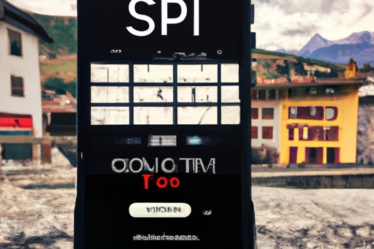
Emerging Trends in the Asia Pacific Hospitality Industry
Welcome to the Weekly HVS Asia Pacific Hospitality Newsletter! In this edition, we will be discussing the emerging trends in the Asia Pacific hospitality industry. The hospitality industry in this region has been experiencing significant growth and transformation in recent years, and it is important for industry professionals to stay updated on the latest trends and developments.
One of the key trends that has been observed in the Asia Pacific hospitality industry is the rise of experiential travel. Today’s travelers are seeking unique and immersive experiences that go beyond just staying in a hotel. They want to engage with the local culture, explore off-the-beaten-path destinations, and participate in authentic activities. As a result, hotels and resorts are increasingly focusing on providing curated experiences and personalized services to cater to these demands.
Another trend that is gaining momentum in the Asia Pacific hospitality industry is the integration of technology. With the rapid advancement of technology, hotels are leveraging various digital tools and platforms to enhance the guest experience. For instance, many hotels now offer mobile check-in and keyless entry systems, allowing guests to bypass the front desk and go straight to their rooms. Additionally, artificial intelligence and chatbots are being used to provide instant customer service and personalized recommendations.
Sustainability is also a growing concern in the Asia Pacific hospitality industry. Travelers are becoming more conscious of their environmental footprint and are actively seeking eco-friendly accommodation options. As a result, hotels are implementing various sustainability initiatives, such as energy-efficient practices, waste reduction programs, and the use of renewable resources. Additionally, some hotels are partnering with local communities and organizations to support conservation efforts and promote responsible tourism.
The rise of the sharing economy has also had a significant impact on the Asia Pacific hospitality industry. Platforms like Airbnb have disrupted the traditional hotel model by offering alternative accommodation options to travelers. Many homeowners are now renting out their properties as vacation rentals, providing guests with a more affordable and unique experience. In response, hotels are adapting by offering more flexible room options, such as extended-stay suites and co-living spaces.
Furthermore, the Asia Pacific hospitality industry is witnessing a shift in target demographics. While business travelers have traditionally been a key market segment, there is now a growing focus on attracting millennial and Gen Z travelers. These younger generations have different preferences and expectations when it comes to travel, such as a desire for authentic experiences, social connectivity, and technology integration. Hotels are adapting by incorporating trendy design elements, creating vibrant social spaces, and offering unique amenities and activities.
In conclusion, the Asia Pacific hospitality industry is experiencing several emerging trends that are shaping the way hotels and resorts operate. From experiential travel and technology integration to sustainability and the sharing economy, these trends are driven by changing consumer preferences and demands. It is crucial for industry professionals to stay informed and adapt to these trends in order to remain competitive in the ever-evolving hospitality landscape. We hope you found this article informative and stay tuned for more updates in our future newsletters.
Key Insights from the Latest Hospitality Market Reports

Welcome to the Weekly HVS Asia Pacific Hospitality Newsletter! In this edition, we will be sharing key insights from the latest hospitality market reports. So grab a cup of coffee and let’s dive right in!
First up, let’s take a look at the hotel performance in the Asia Pacific region. According to the latest report, the region has experienced a steady growth in occupancy rates, with an average increase of 2% compared to the same period last year. This is great news for hoteliers, as it indicates a positive trend in the market.
Moving on to room rates, the report reveals that there has been a slight decline in average daily rates (ADR) across the region. This can be attributed to various factors such as increased competition and the rise of alternative accommodation options. However, despite the decrease in ADR, the overall revenue per available room (RevPAR) has remained stable, thanks to the increase in occupancy rates.
In terms of market segmentation, the report highlights the growing importance of the Chinese market. With the rise of outbound Chinese travelers, hotels in the region have seen a significant increase in Chinese guests. This presents a great opportunity for hoteliers to tailor their services and amenities to cater to this specific market segment.
Another interesting insight from the report is the emergence of wellness tourism in the Asia Pacific region. With an increasing focus on health and well-being, more travelers are seeking out hotels that offer wellness facilities and programs. This trend presents a unique opportunity for hoteliers to differentiate themselves and attract a niche market of wellness-conscious travelers.
Moving on to the investment landscape, the report reveals that there has been a surge in hotel transactions in the Asia Pacific region. This can be attributed to the strong investor confidence in the hospitality sector, as well as the attractive returns that hotels can offer. Investors are particularly interested in key markets such as China, Japan, and Australia, where there is a high demand for quality hotel assets.
In terms of future outlook, the report predicts a positive growth trajectory for the Asia Pacific hospitality market. With the region’s strong economic growth and increasing disposable income, the demand for travel and accommodation is expected to continue rising. This presents a great opportunity for hoteliers to capitalize on the growing market and expand their operations.
In conclusion, the latest hospitality market reports provide valuable insights into the Asia Pacific hospitality industry. From the steady growth in occupancy rates to the emergence of wellness tourism, there are plenty of opportunities for hoteliers to thrive in this dynamic market. With the right strategies and a focus on meeting the evolving needs of travelers, hotels in the region can look forward to a bright future. That’s all for this week’s newsletter. Stay tuned for more updates and insights in the next edition. Happy reading!
Exclusive Interviews with Industry Leaders in the Asia Pacific Region
Welcome to the Weekly HVS Asia Pacific Hospitality Newsletter! In this edition, we bring you exclusive interviews with industry leaders in the Asia Pacific region. We have had the privilege of speaking with some of the most influential figures in the hospitality industry, who have shared their insights and experiences with us.
Our first interview is with Mr. John Tan, the CEO of a leading hotel chain in the region. Mr. Tan discusses the challenges and opportunities that the industry has faced in recent years. He emphasizes the importance of adapting to changing consumer preferences and the need for innovation in order to stay competitive. According to Mr. Tan, technology has played a crucial role in transforming the guest experience, and hotels must continue to invest in digital solutions to meet the evolving needs of their guests.
Next, we have Ms. Sarah Lee, the General Manager of a luxury resort in Bali. Ms. Lee shares her thoughts on sustainability in the hospitality industry. She believes that hotels have a responsibility to minimize their environmental impact and contribute to the well-being of local communities. Ms. Lee highlights the initiatives her resort has taken to reduce waste, conserve energy, and support local artisans. She also emphasizes the importance of educating guests about sustainable practices and involving them in the resort’s conservation efforts.
Our third interview is with Mr. Rajesh Sharma, the Director of Sales and Marketing at a renowned convention center in Singapore. Mr. Sharma discusses the impact of the COVID-19 pandemic on the MICE (Meetings, Incentives, Conferences, and Exhibitions) sector. He acknowledges the challenges faced by the industry during the lockdowns and travel restrictions but remains optimistic about its recovery. Mr. Sharma believes that virtual and hybrid events will continue to play a significant role even after the pandemic, as they offer a cost-effective and convenient alternative for participants.
Moving on, we have Mr. Hiroshi Nakamura, the President of a leading hotel management company in Japan. Mr. Nakamura shares his insights on the future of hospitality in the post-pandemic era. He believes that the industry will witness a shift towards personalized experiences and a greater emphasis on health and safety. Mr. Nakamura also highlights the importance of collaboration between hotels and local communities to create unique and authentic experiences for guests.
Lastly, we have Ms. Emily Chen, the CEO of a boutique hotel in Shanghai. Ms. Chen discusses the rise of experiential travel and the growing demand for unique and immersive experiences. She emphasizes the need for hotels to go beyond providing comfortable accommodations and offer guests opportunities to connect with the local culture and heritage. Ms. Chen also shares her thoughts on the importance of storytelling in creating memorable guest experiences.
In conclusion, our exclusive interviews with industry leaders in the Asia Pacific region have provided valuable insights into the challenges and opportunities facing the hospitality industry. From adapting to changing consumer preferences to embracing sustainability and innovation, these leaders have shared their experiences and strategies for success. As the industry continues to evolve, it is clear that collaboration, innovation, and a focus on guest experiences will be key to staying ahead in the competitive landscape. Stay tuned for more exciting interviews and updates in our upcoming newsletters!


